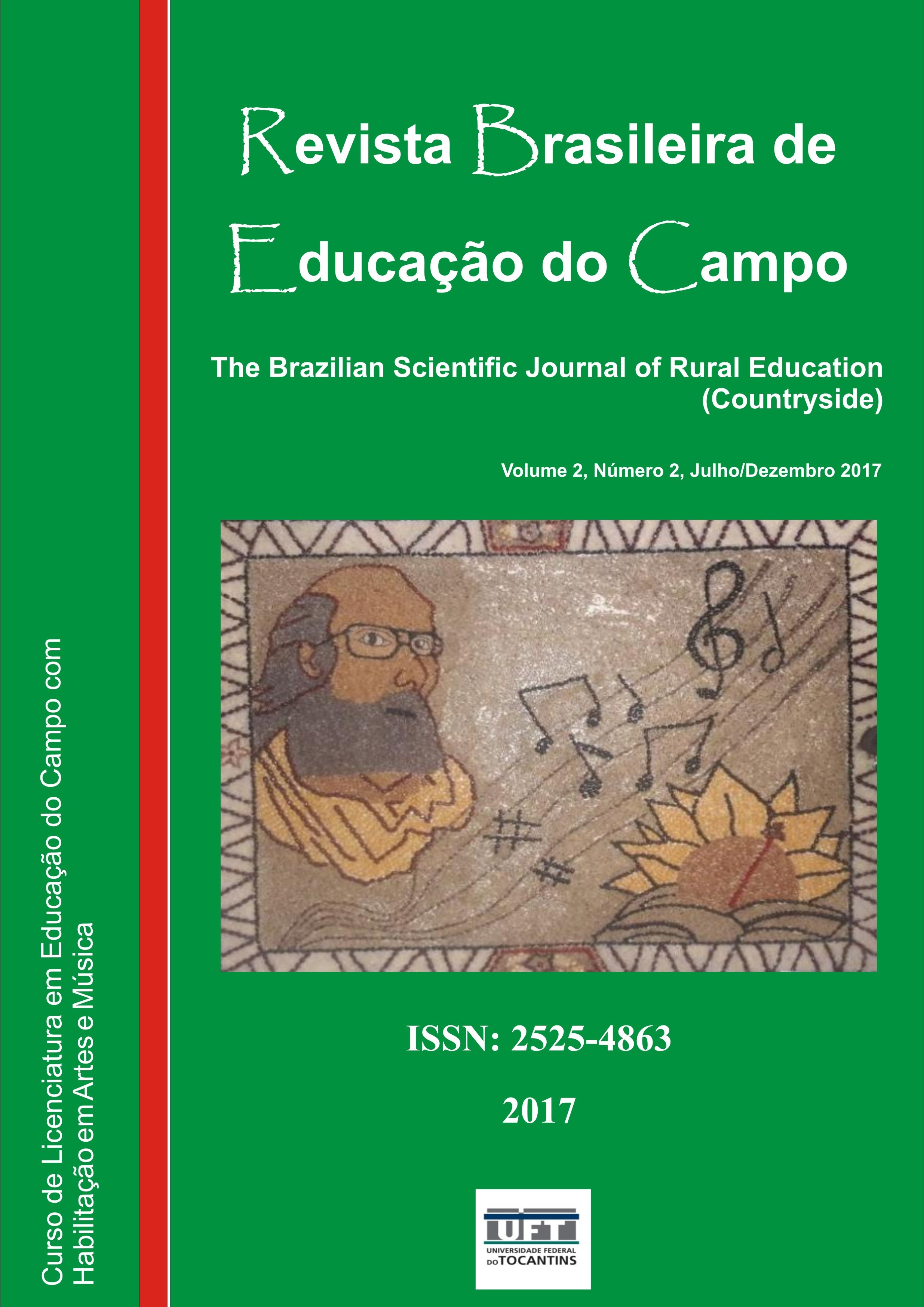The meaning of the Pedagogical Political Project in the construction of participatory actions and relationships in rural education
DOI:
https://doi.org/10.20873/uft.2525-4863.2017v2n2p607Abstract
ABSTRACT. We analyze in this article the understanding that six teachers of a rural school expresses about the meaning of the Pedagogical Political Project as an instrument for the construction of participatory actions and relations, therefore, democratic. This article is the result of a bibliographical and investigative study that focuses on the meaning of the Pedagogical Political Project as a founding instrument in the construction of the democratization of school management. Thus, the objective was to analyze teachers' understanding of the meaning of the Political Pedagogical Project in order to contemplate or not the two basic principles of democratic management: autonomy and participation. In this sense, the public school has the challenge of responding to the demands that the contexts place on it, in the perspective of building a more egalitarian society, in which the subjects can participate as actors and not only as spectators or subjects of validation of the decisions previously taken by the Team of the school.
Downloads
Literaturhinweise
Brasil. (2002). Diretrizes operacionais para a educação básica do campo. (Resolução CNE/CEB 1, de 03 de abril de 2002). Brasília: Conselho Nacional de Educação – Câmara de Educação Básica 134.
Constituição da República Federativa do Brasil de 1988. (2007). Rio de Janeiro, DP & A Editora.
Caldart, R. S. (2002). Por uma educação do campo: traços de uma identidade em construção. In Kolling, E. J., Cerioli, P. L., & Caldart, R. S. (Orgs.), Educação do campo: identidade e políticas públicas (pp. 25-36). Brasília, DF: NEAD.
Carvalho, A. L. (2006). A formação centrada na escola: a ponte edificadora do projeto político pedagógico. In Monteiro, F. M. A., & Muller, M. L. R. (Orgs.). Profissionais da educação: políticas, formação e pesquisa (pp. 183-196). Cuiabá, MT: EdUFMT.
Escola Municipal Rural de Ensino Fundamental Fazenda Carimã (2013). Projeto Político Pedagógico. Rondonópolis, MT.
Garske, L. M. N. (1998). Um novo fazer administrativo e pedagógico no processo de democratização da escola pública (Dissertação de Mestrado). Universidade Federal de Mato Grosso, Cuiabá.
Hora, D. L. (2007). Gestão educacional democrática. Campinas, SP: Editora Alínea.
Koling, E. J., Nery, I. I. J., & Molina, M. C. (Orgs.). (1999). Por uma educação básica do campo. Brasília, DF: MST, UnB/CNBB/UNICEF/UNESCO.
Lima, M. R. C. (2007). Paulo Freire e a administração escolar. Brasília, DF: Liber Livros Editora.
Machado, I. F. (2003). A organização do trabalho pedagógico em uma escola do MST e a perspectiva de formação omnilateral (Tese de Doutorado). Universidade Estadual de Campinas, Campinas.
Oliveira, I. B. (2009). Democracia no cotidiano da escola. Petrópolis, RJ: DP & A Editora.
Paro, V. H. (1997). Administração escolar e qualidade do ensino: o que os pais ou responsáveis têm a ver com isso? In Simpósio Brasileiro de Política e Administração da Educação (pp. 303-314). Porto Alegre, RS.
Severino, A. J. (1998). O projeto político-pedagógico: uma saída para a escola. Para onde vai a escola? Revista de Educação da AEC, 27(107), 81-91.
Veiga, I. P. A. (2002). Projeto político-pedagógico da escola: uma construção coletiva. In Veiga, I. P. A. (Org.). Projeto político-pedagógico: uma construção possível. Campinas, SP: Papirus.
Verger, A., & Bonal, X. (2011). La estrategia educativa 2020 o las limitaciones del Banco Mundial para promover el “aprendizaje para todos”. Educação & Sociedade, 32(117), 911-932.
Veröffentlicht
Zitationsvorschlag
Ausgabe
Rubrik
Lizenz
Creative Commons Attribution License
Creative Commons Attribution License
Proposal for Copyright Notice Creative Commons
1. Policy Proposal to Open Access Journals
Authors who publish with this journal agree to the following terms:
A. Authors retain copyright and grant the journal right of first publication with the work simultaneously licensed under the Creative Commons Attribution License that allows sharing the work with recognition of its initial publication in this journal.
B. Authors are able to take on additional contracts separately, non-exclusive distribution of the version of the paper published in this journal (ex .: publish in institutional repository or as a book), with an acknowledgment of its initial publication in this journal.
C. Authors are permitted and encouraged to post their work online (eg .: in institutional repositories or on their website) at any point before or during the editorial process, as it can lead to productive exchanges, as well as increase the impact and the citation of published work (See the Effect of Open Access).














